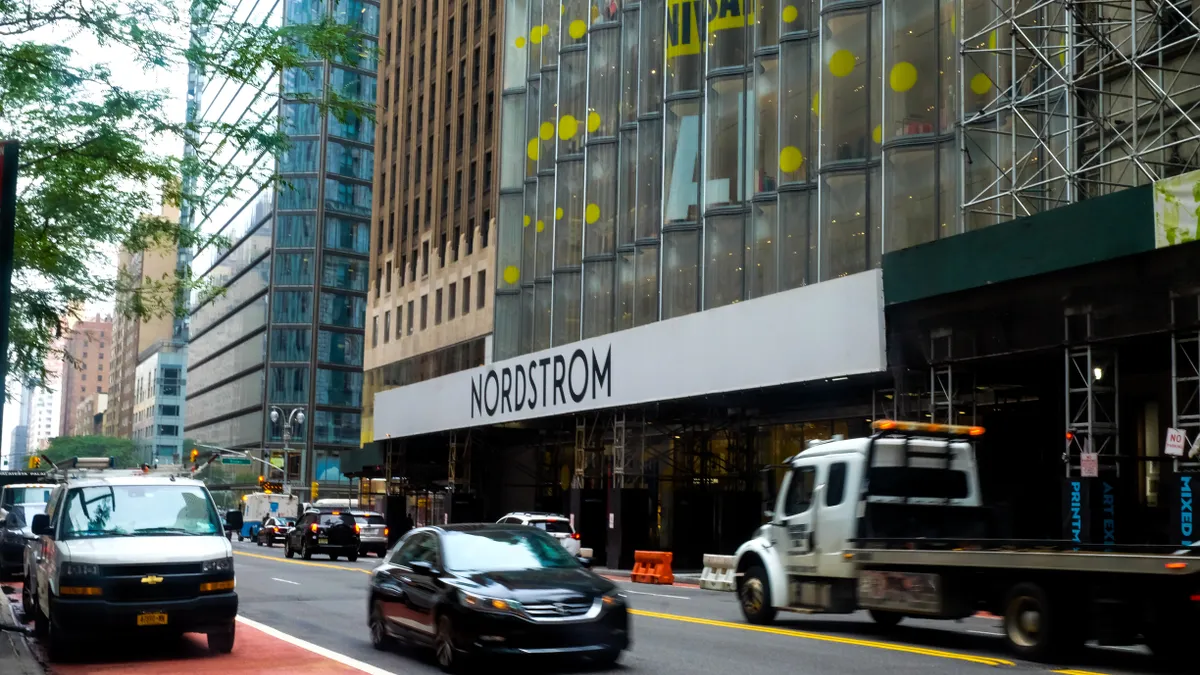Dive Brief:
-
Nordstrom on Thursday announced a tie-up with Fanatics, employing the drop-ship model the department store announced earlier this year. That entails Nordstrom.com handling sales and Fanatics fulfilling and shipping orders, according to a press release.
-
The "long-term" partnership brings Nordstrom "an entirely new product category," with licensed products from major sports leagues featured in a new Nordstrom.com Sports Fan Shop.
-
Merchandise for men, women and children includes brands like Fanatics, Nike, Adidas and Mitchell & Ness, the companies said.
Dive Insight:
Through marketplaces and tweaks to operations like the drop-ship tactic announced by Nordstrom earlier this year, retailers are increasingly looking to wriggle out of some of the costlier aspects of the business, especially when it's conducted online.
Stitch Fix, which has invited a new set of challenges to its model by opening its inventory to all buyers and not just subscription customers, this year similarly touted its increasing use of drop-shipping.
The idea is to spur growth "through increased non-wholesale models to offer customers more choices," Nordstrom reiterated in its release. In February, Nordstrom executives said the plan is to reduce its traditional wholesale operation, which now provides 85% of its assortment, to provide 50%, by increasing drop-shipping and concessions and instituting a hybrid model with shared revenue and risk.
But, while Nordstrom is framing this as a departure from wholesale, it's really an evolution of it, according to BMO Capital Markets Managing Director Simeon Siegel. A recent BMO report called into question many brands' notion that more DTC sales equal higher profits, with those analysts estimating that wholesale margins are about 1,000 basis points higher on average than those of direct brand sales, prior to taxes and interest payments.
For Nordstrom, the partnership indicates that brands still value their role as a distributor of their goods, Siegel said by phone on Friday.
"This idea of a department store selling other people's brands is obviously not new — it's inherent to who they are," he said. "The question of how they sell is what will evolve. The brands need to be comfortable, and the brands should be comfortable, acknowledging partners. I think that's what this is showing — a very powerful company still acknowledging that department stores have a very important role in the future of retail."
















